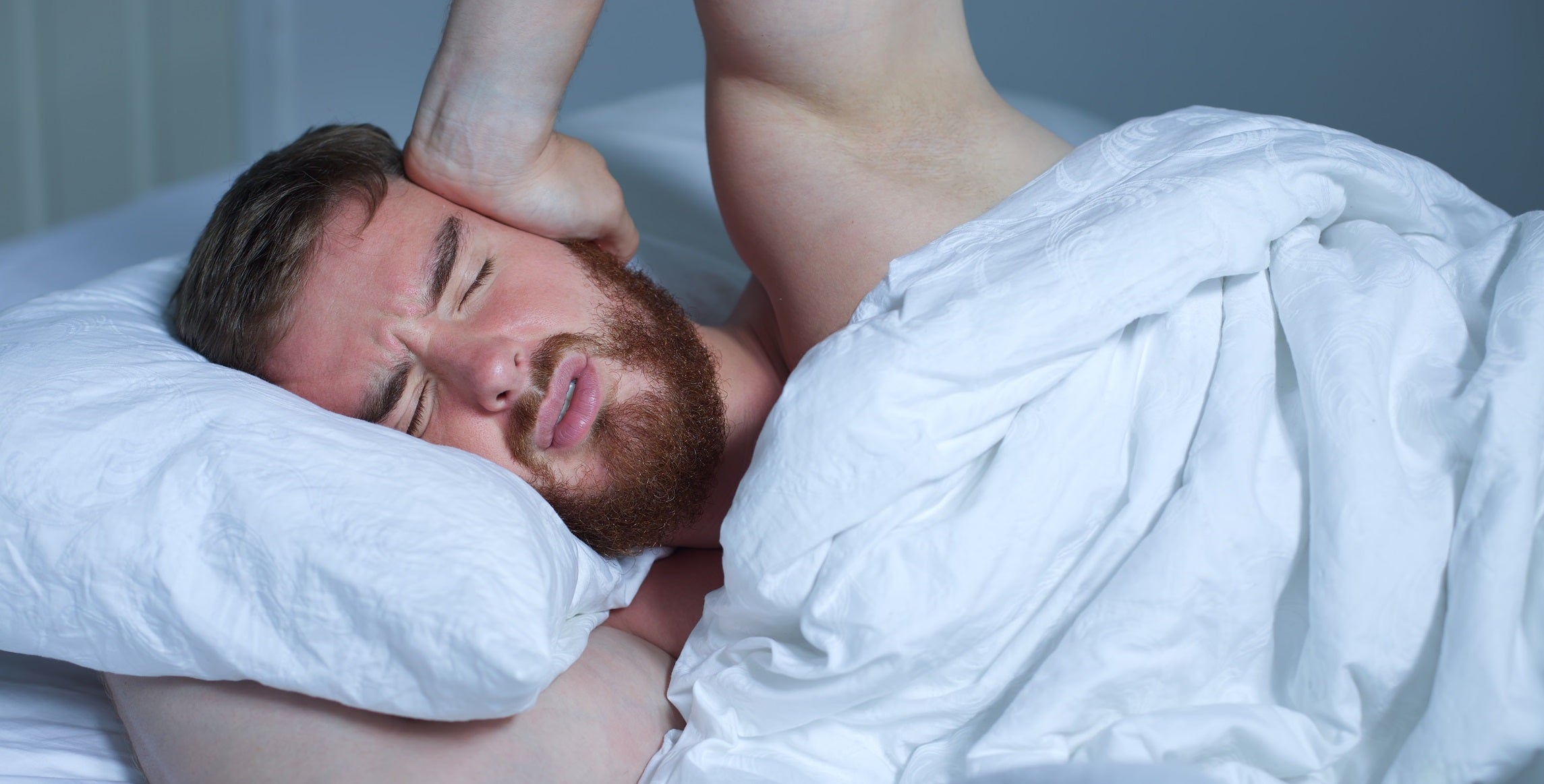Snoring Mouthpiece vs. Chin Straps
The ZQuiet team knows that a better night’s sleep can come in many shapes and sizes. To help you find the best snoring treatment for you, we’re putting together the most accurate and up-to-date information about all of your treatment options. When researching different snoring solutions, you will likely come across snoring mouthpieces and snoring chin straps. Snoring mouthpieces, sometimes called snoring mouth guards or oral appliances, are snoring aids placed in the user’s mouth to slightly adjust how the jaw rests. This helps open up your airway passage and reduce vibrations in the soft tissues of your throat. These vibrations are the most common cause of snoring sounds. Snoring chin straps are exactly what they sound like: Fabric straps that wrap around your chin and head to hold your jaw in place. These work differently than snoring mouthpieces by keeping the mouth closed while you sleep, which reduces the movement of your tongue and the likelihood that your throat’s soft tissues will vibrate, causing you to snore. Depending on your preferences and medical history, one solution might be more appropriate than another. Keep reading to learn more about snoring mouthpieces, chin straps, and their pros and cons, to help you decide which solution will finally kick snoring out of bed.
How Can A Snoring Mouthpiece Provide Relief?
Snoring mouthpieces are generally considered the most common type of oral snoring solutions. These come in two different forms, mandibular advancement devices (MAD) and tongue stabilizing devices (TSD), which target different problem areas that contribute to snoring. MAD snoring mouthpieces, like ZQuiet, slightly reposition your lower jaw forward when you sleep to widen your airway. This reduces the vibrations of soft tissues in the back of your throat that normally result in the sound of snoring. TSD snoring mouthpieces treat snoring differently by preventing your tongue from sliding to the back of your throat when you sleep, which also contributes greatly to the sound of snoring. The most common TSD design is a tongue retaining device uses a hollow bulb that creates suction to pull the tongue forward through the lips and keep it from falling back toward the throat.
Benefits And Features Of Snoring Mouthpieces
No two snoring mouthpieces work exactly the same, so depending on your preferences, one mouthpiece might work better for you than another. First, many mouthpieces require some preparation to custom form to your mouth and dentition — sometimes requiring you boil, mold or adjust to fit your mouth. The hassle of preparing these mouthpieces to fit your mouth often makes them more trouble than they’re worth. Moldable mouthpieces are also inherently rigid and bulky because they require a hard outer shell to hold the moldable material. These two layers sometimes split apart, allowing saliva to get caught in the cracks which promotes bacteria growth. ZQuiet offers a different way to have a customized fit. With its universal fit, ZQuiet’s snoring mouthpiece is made of only one soft material that allows you to skip all the bite-and-boil preparation while remaining comfortable and form-fitted to the shape of your mouth. One of the main benefits of ZQuiet’s snoring mouthpiece is its patented living hinge design, which gives you the freedom to open and close your mouth, move your jaw more freely, and breathe easily through your mouth and nose. Other mouthpieces offer less flexibility and restrict breathing through the mouth in order to keep the product in place.
Potential Challenges When Using A Snoring Mouthpiece
Although many snoring mouthpieces effectively treat snoring, they’re not indicated for sleep apnea treatment or other breathing disorders. If you suffer from dental challenges, such as dentures or oral prostheses, missing or loose teeth, or strong overbites, then a snoring mouthpiece might not be right for you. Consult your dentist to decide whether your dentition can support a snoring mouthpiece and your teeth can handle the mouthpiece pressure without issues. To learn more about the best snoring mouthpieces in 2022, check out our helpful resource here.
What Is A Snoring Chin Strap?
How does a snoring chin strap work to reduce snoring? Snoring chin straps actually work somewhat similarly to tongue stabilizing devices insofar as they prevent your tongue from moving back toward your throat and creating vibrations. Chin straps also keep your mouth closed and your jaw positioned in place, minimizing the vibrations of air traveling past the soft tissues of your throat, which cause the irritating sound of snoring.
Benefits Of Using A Snoring Chin Strap
There are some key advantages to snoring chin straps. There is little-to-no set up required, as you can simply place the strap across your head. You can also use snoring chin straps if you wear dentures or deal with other obstructive dental issues — something you might struggle with when using a snoring mouthpiece. Additionally, chin straps are often more affordable than many other snoring aids.
Potential Drawbacks Of Snoring Chin Straps
Chin straps also present some obvious challenges to a good night’s sleep. While wearing a chin strap, you cannot breathe through your mouth, which can be problematic if you suffer from congestion or have difficulty breathing through your nose. One common issue is the discomfort having a strap wrapped around your face and head, which some find uncomfortable or makes them feel claustrophobic. There’s also the chance that your chin strap will shift position while you sleep, which could keep the strap from doing its job to prevent snoring.
Should You Use A Snoring Mouthpiece Or Chin Strap To Treat Your Snoring?
The decision to use a snoring mouthpiece or a chin strap comes down to your personal needs, medical history, and snoring habits. Chin straps, while affordable, easy to apply, and denture-friendly, ultimately prove difficult for some users who would rather breathe through their mouth during sleep. And the added discomfort of something wrapped around your face holding your jaw in place might worsen your sleep rather than help it. For those not suffering from dental issues, snoring mouthpieces give you a cost-effective, accessible, and effective treatment method for general snoring. If you’re considering snoring mouthpieces, be mindful of each brand’s different features that could hinder your restful sleep. Getting your best night’s sleep should start with a comfortable and effective mouthpiece like ZQuiet. Want to learn how ZQuiet delivers a better night’s sleep? See why it works here.


